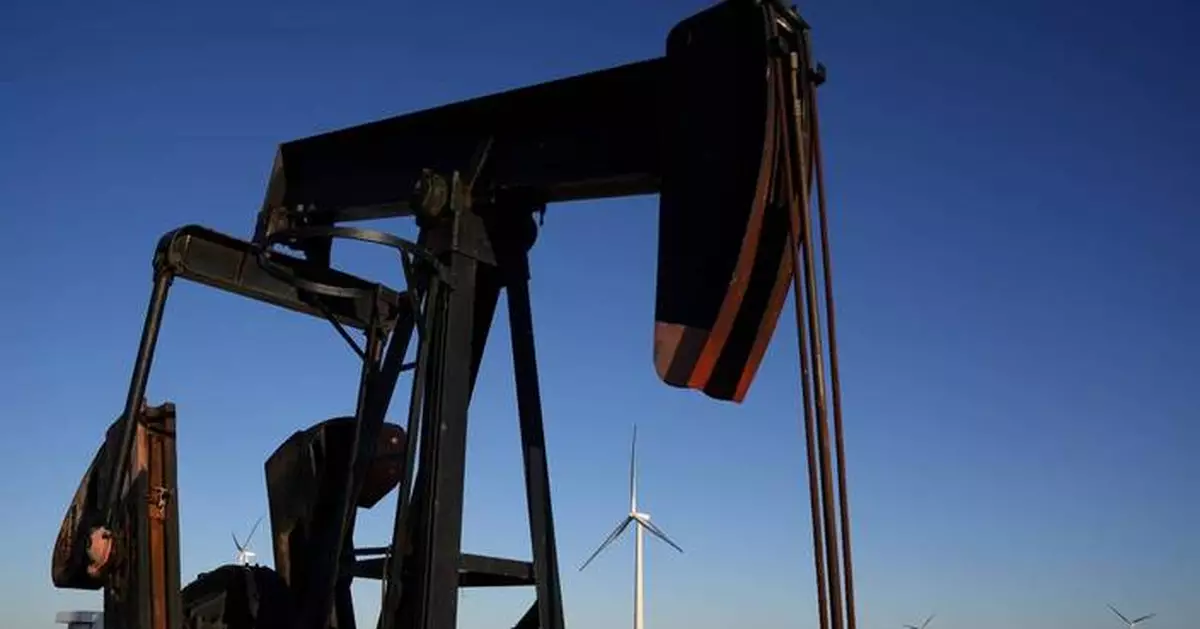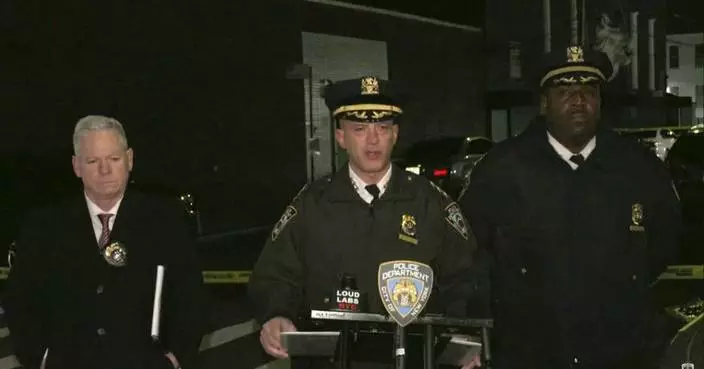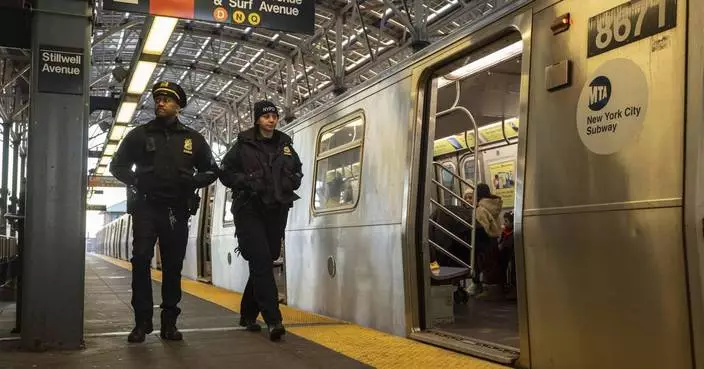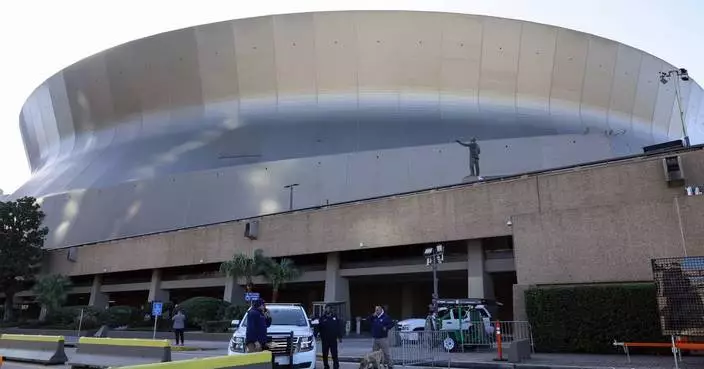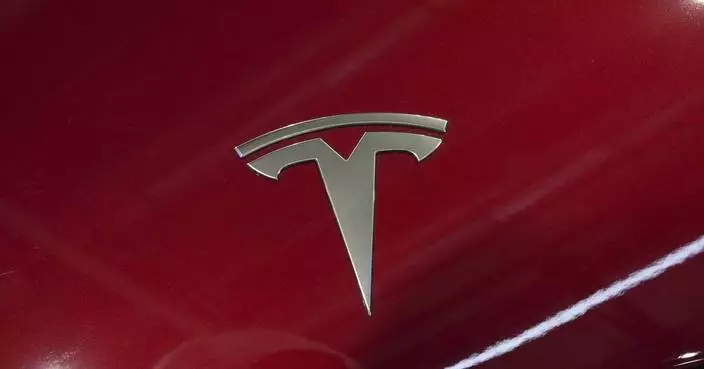WASHINGTON (AP) — Global efforts to fight climate change stumbled but survived the last time Donald Trump was elected president and withdrew the United States from an international climate agreement. Other countries, states, cities and businesses picked up some of the slack.
But numerous experts worry that a second Trump term will be more damaging, with the United States withdrawing even further from climate efforts in a way that could cripple future presidents' efforts. With Trump, who has dismissed climate change, in charge of the world's leading economy, those experts fear other countries — especially top polluting nation China — could use it as an excuse to ease off their own efforts to curb carbon emissions.
“There's no hope of reaching a safe climate without substantive action from the United States, from China, from Europe,” said Stanford University climate scientist Rob Jackson, who chairs the Global Carbon Project, a group of scientists that tracks countries' carbon dioxide emissions, which have been rising globally. He said he's certain the world is shooting past the internationally accepted threshold of limiting warming to 1.5 degrees Celsius since pre-industrial times. That's just a couple tenths of a degree away. Others believe the goal is alive.
Trump's reelection comes as the world is on track to set yet another record hot year, and has been lurching from drought to hurricane to flood to wildfire.
“An emboldened Trump would be terrible,” European Climate Foundation CEO Laurence Tubiana said in August.
On Wednesday, Tubiana, the former French official who helped forge the landmark 2015 Paris Agreement that Trump pulled out of, called the election result a setback for global climate action. But she added: "The Paris Agreement has proven resilient and is stronger than any single country’s policy.”
The United Nations’ annual climate negotiations to follow on the Paris accord start next week in Baku, Azerbaijan. In the months after, all countries including the U.S. must issue national plans showing how they will increase efforts to limit heat-trapping emissions from coal, oil and natural gas.
“Baku will be the earliest test of the resilience of the global climate regime,” said Asia Society Policy Institute Director Li Shuo, who foresees the European Union and China stepping up to fill the U.S. leadership void, especially economically. “It should also unite other countries.”
It sort of did that in 2017, when Trump announced that the U.S. would abandon the Paris climate agreement.
"Not a single country followed the U.S. out the door," said Alden Meyer, a longtime climate negotiations analyst with the European think tank E3G. "We saw the birth and launch of the We Are Still In movement of subnational actors, investors, businesses, governors, mayors and others here in the U.S.”
Meyer and others said a more serious step than withdrawing from Paris is possible. That would be pulling out of an underlying treaty from 1992 that set curbing climate change and saving biodiversity as part of global environmental goals for the 21st century, as well as withdrawing from the United Nations climate change fighting system that fosters negotiations, records emissions and what's being done about them.
Project 2025, a conservative post-election blueprint that the Trump campaign distanced itself from but was written by his allies, called for withdrawing from both that U.N. framework and the Paris Agreement.
In 1992, then-President George H.W. Bush signed the Rio conventions, which set up the United Nations Framework Convention on Climate Change. That eventually led to agreements in Kyoto and Paris. The Rio agreement was unanimously approved by the U.S. Senate, but senators soundly rejected the 1997 Kyoto Protocol and President George W. Bush pulled the U.S. out of it.
When negotiators were crafting the 2015 Paris deal, they made it voluntary and made it part of the Rio treaty so no Senate approval was needed. That allowed President Joe Biden in 2021 to immediately rejoin the Paris Agreement without Senate approval.
It's not straightforward, but an exit from Rio and the UNFCCC could make it nearly impossible for the U.S. to get back into climate negotiations, Meyer said.
David Waskow, international climate director for World Resources Institute, agreed. He said withdrawal from the U.N. agreement “would not only place the U.S. on the sidelines of international climate discussions but would be like ejecting itself from the stadium.”
The Paris agreement calls for nations to submit new and more aggressive plans to reduce emissions of heat-trapping gases every five years. Those are due next February and the Biden administration has promised to submit one before it ends “to show what should be done, what can be done,” Meyer said. But the assumption is that the new Trump administration won't honor it, he said.
Meyer said the United States pulling out of climate agreements in Republican administrations and then trying to lead the world in Democratic ones is like the Peanuts cartoon when Lucy keeps pulling the football away from Charlie Brown.
“The world has gotten tired of this routine,” Meyer said.
Joanna Depledge, a historian of international climate negotiations, said she expected Trump's new term will mean four lost years for U.S. climate action. But she added: “The rest of the world is used to U.S. flip-flopping now and will not be diverted from their own efforts.”
Because of the 2020 pandemic and the timing of deadlines created by the Paris Agreement, the three United Nations climate negotiations that took place during the first Trump administration weren’t as ambitious as they could have been. Now, urgent action is needed at the summit this year and next, Depledge and others said.
U.N. climate chief Simon Stiell said negotiations continue because “the fundamental facts remain unchanged: global heating is already hammering every nation, hitting national and households budgets harder every year.”
The Biden administration will still represent the United States next week, when crucial negotiations will address financial help that poor nations need to cope with and fight climate change. But Harris' loss undercuts negotiations because “everyone there knows" the U.S. is unlikely to follow through on any agreement it signs, Stanford's Jackson said.
One of the dynamics of past negotiations during Democratic regimes was that any U.S.-China deal usually led to a global one. Usually the United States “is able to nudge” a more reluctant China to be more ambitious about fighting climate change, Asia Society's Li Shuo said.
“Beijing will read the air in Washington and their conclusion is climate does not enjoy the same level of momentum it had a couple of years ago,” Li said.
But despite all this, many in the insular world of climate negotiations somehow keep optimistic.
“There is an antidote to doom and despair,” said former U.N. climate chief Christiana Figueres said. “It's action on the ground and it's happening in all corners of the Earth.”
__
Read more of AP’s climate coverage at http://www.apnews.com/climate-and-environment
Follow Seth Borenstein on X at @borenbears
The Associated Press’ climate and environmental coverage receives financial support from multiple private foundations. AP is solely responsible for all content. Find AP’s standards for working with philanthropies, a list of supporters and funded coverage areas at AP.org.
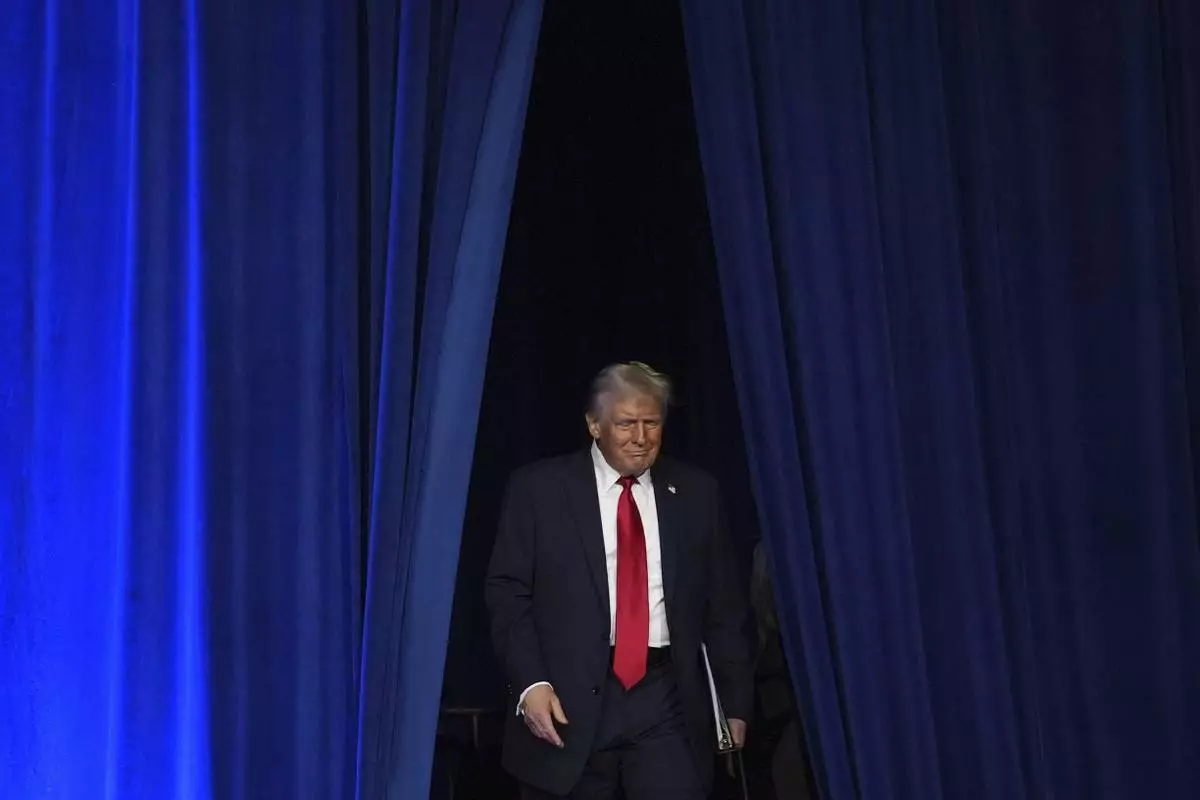
FILE - Republican presidential nominee former President Donald Trump arrives at an election night watch party at the Palm Beach Convention Center, Nov. 6, 2024, in West Palm Beach, Fla. (AP Photo/Evan Vucci, File)
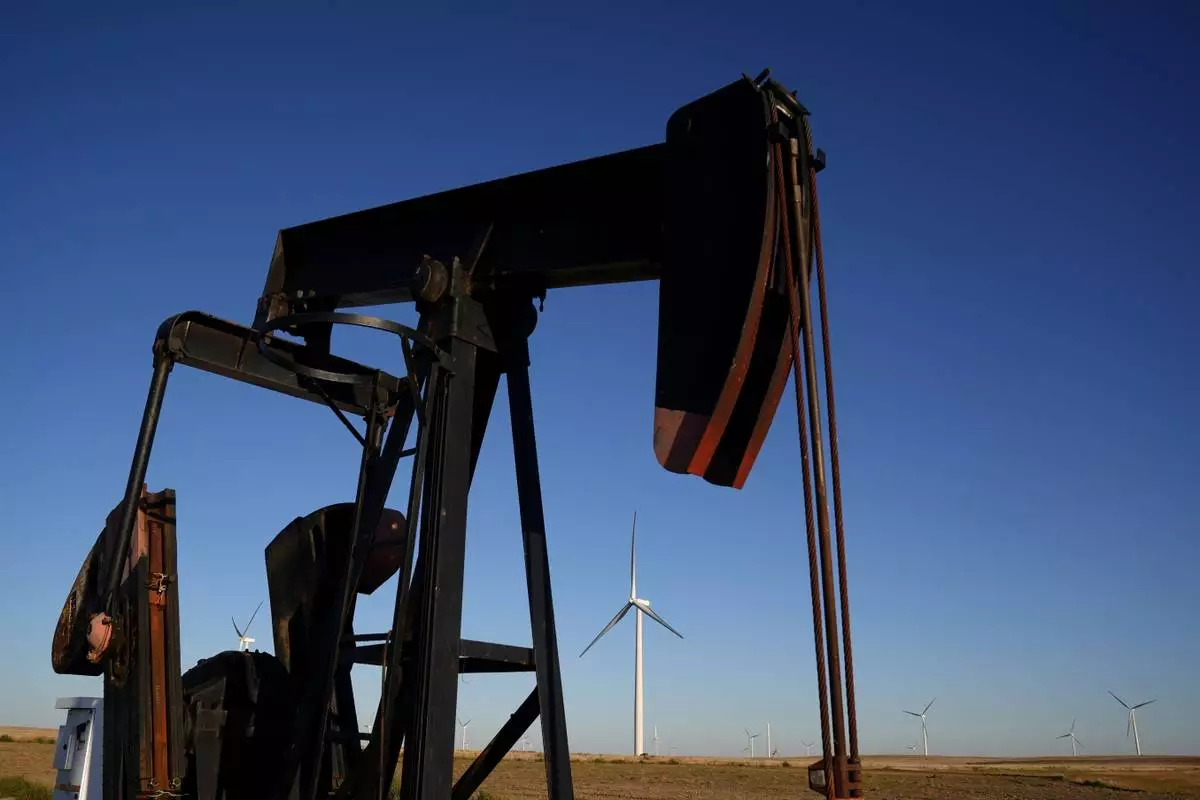
A pumpjack operates in the foreground as wind turbines at the Buckeye Wind Energy wind farm rise in the distance, Monday, Sept. 30, 2024, near Hays, Kan. (AP Photo/Charlie Riedel)


